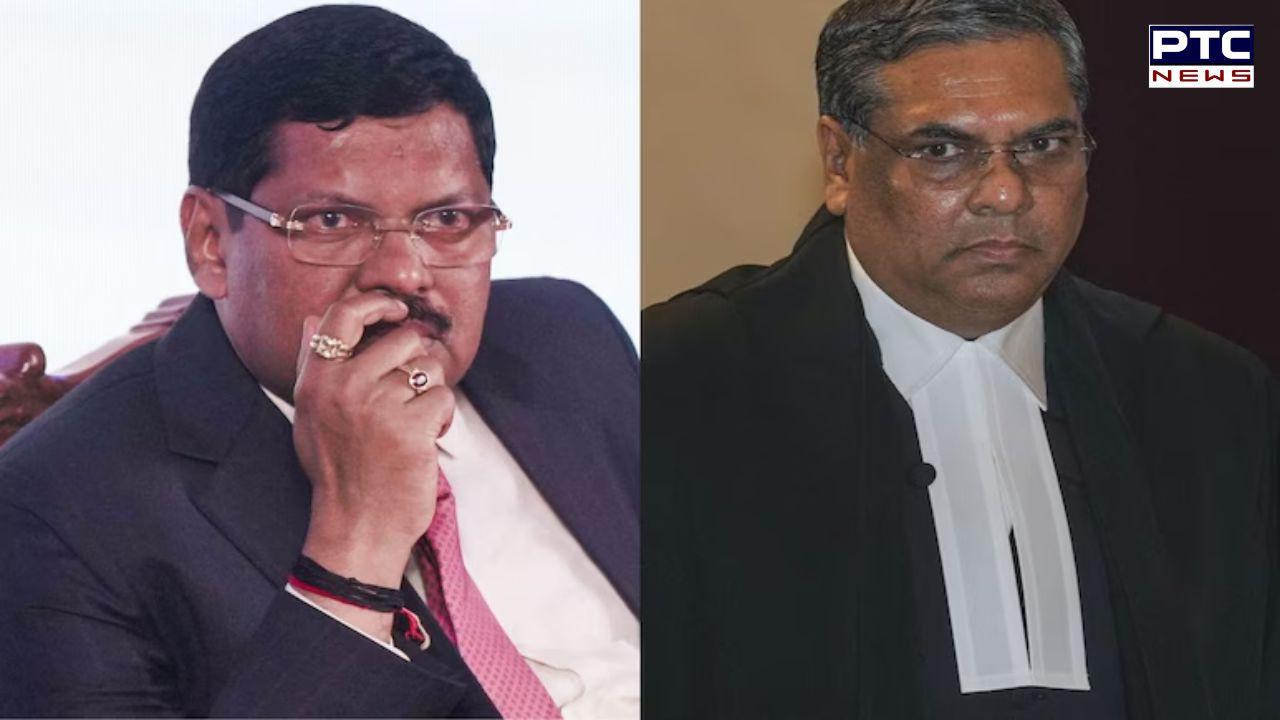

CJI Sanjiv Khanna retires; Justice BR Gavai to succeed as 52nd Chief Justice
PTC News Desk: Chief Justice of India (CJI) Sanjiv Khanna bid adieu to his colleagues at the Supreme Court this morning after he retired from his service and passed on the baton to Justice Bhushan Ramkrishna Gavai. Justice Sanjiv Khanna served as the 51st Chief Justice of the Supreme Court of India.
CJI Khanna said public trust cannot be commanded; it has to be earned, and that the Supreme Court has done it.
"I am speechless. I carry a lot of memories. Once you are a lawyer, you remain a lawyer. The public trust that the judiciary has cannot be commanded and has to be earned. Judiciary is a common term that represents the Bench and the Bar. Bar is the conscience keeper," he told the ceremonial bench, which was called to honour his legacy.
Justice Khanna emphasised that different backgrounds and the diversity of the judges at the Supreme Court helped in right decision-making. Justice BR Gavai will take the oath as the 52nd Chief Justice of India tomorrow.
Below are the landmark judgments pronounced by Justice Sanjiv Khanna
Article 370 Abrogation
In December 2023, a five-judge Constitution Bench unanimously affirmed the Union government’s 2019 move to revoke Article 370, which had granted special autonomy to the former state of Jammu and Kashmir.
Electoral Bonds Declared Unconstitutional
In February 2024, a five-judge Constitution Bench unanimously invalidated the Electoral Bonds scheme, which permitted anonymous political donations. The Court ruled that the scheme violated citizens' right to information and undermined freedom of speech and expression under Article 19(1)(a) of the Constitution.
Hate Speech vs. Free Speech
In December 2020, the Supreme Court declined to dismiss cases filed against journalist Amish Devgan over comments made about Sufi saint Moinnuddin Chishti. Justice Khanna, in his judgment, underscored the distinction between hate speech and free speech, emphasized the need to criminalize hate speech, and outlined criteria for identifying it.
Invalidation of 25,000 Appointments in West Bengal
In April 2024, the Supreme Court upheld the Calcutta High Court’s ruling that nullified nearly 25,000 appointments of teaching and non-teaching staff made by the West Bengal School Service Commission (SSC) in 2016.
Arrest Powers under GST and Customs Acts
In March 2024, a three-judge bench upheld the constitutional legitimacy of Sections 69 and 70 of the Goods and Services Tax (GST) Act, which authorize GST officials to arrest and summon individuals. Justice Khanna, who delivered the judgment, also clarified that anticipatory bail is permissible for offences under the GST Act.
Arvind Kejriwal Granted Bail
In July 2024, while granting interim bail to then Delhi Chief Minister Arvind Kejriwal, a bench headed by Justice Khanna emphasized the necessity for the Enforcement Directorate (ED) to adopt a consistent policy regarding arrests under the Prevention of Money Laundering Act (PMLA).
- With inputs from agencies
